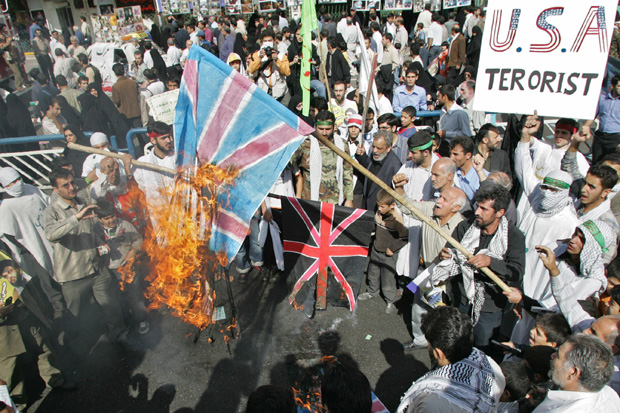When British troops were on patrol in Iraq and Afghanistan, we faced many enemies, from jihadis to press-ganged civilians. But for me, the most terrifying ones lay buried. Bullets usually miss. Improvised explosive devices – IEDs — don’t. They are frighteningly simple. Old munitions wired together or plastic bottles packed with fertiliser and ball-bearings could destroy a vehicle and kill its passengers.
During my four years in Afghanistan I saw IEDs evolve: first came remote triggers, then pressure plates and then low-metal-content devices. Curiously, IEDs evolved in a similar way in Iraq. This should be no surprise, since the groups trying to kill British troops shared one common resource: Iranian support.
For years, Tehran has armed insurgents. Through the Quds Force, the special forces unit of the regime’s Islamic Revolutionary Guard Corps, it has killed British troops and plotted to assassinate diplomats in Washington DC. The ayatollahs have nurtured terrorists around the world. Their war has never been declared, but has cost many lives.
Qassem Suleimani, the commander of the Quds Forces, has waged a secret war against Britain for years. Seeking to limit our options, his forces, Russian allies and Syrian and Hezbollah proxies, have slaughtered the more moderate Syrian rebels. What’s more, he is trying to split us from our allies. By smuggling weapons into Bahrain and Kuwait to encourage violence, he’s trying to force the Royal Navy from its principal base in the Persian Gulf.
Serving in the armed forces across the region, I learned how Iran spreads its malign influence. In Lebanon and Syria I saw how its Revolutionary Guard Corps supported fighters and shaped regional leaders. Today, we are watching Russia join Tehran in military adventurism in Syria — not just to secure Assad but to challenge our interests.








Comments
Join the debate for just £1 a month
Be part of the conversation with other Spectator readers by getting your first three months for £3.
UNLOCK ACCESS Just £1 a monthAlready a subscriber? Log in